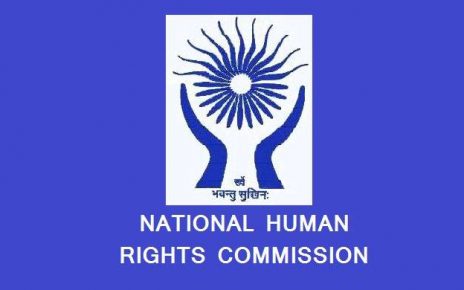THE WEEK
05 September 2019
New Delhi, Sep 5 (PTI) The Supreme Court Thursday dismissed a plea seeking direction to the Centre to enact a suitable stand alone comprehensive legislation based on UN Convention on custodial torture, observing that it is under the government’s “active consideration”.
A bench headed by Chief Justice Ranjan Gogoi rejected the plea of senior advocate and former union law minister Ashwani Kumar, who has sought a direction to the government to enact a suitable stand-alone law on custodial torture.
Kumar had earlier filed a PIL in the apex court, which had in November 2017, said it cannot direct the government to make a law to prevent torture and inhuman treatment in custody when the Centre was already looking into the issue in “all seriousness”.
Kumar had in 2018 filed an application saying no action has been taken by the government in the matter and the court should direct it to bring in comprehensive legislation on the issue for the protection and advancement of human dignity.
In its verdict, the bench, which also comprised justices Dinesh Maheshwari and Sanjiv Khanna, noted the submissions of the Centre which said all the states and Union Territories have filed their suggestions on the draft legislation prepared on the basis of the Law Commission’s report and the issue of enacting a legislation is under consideration.
“This is not a case which requires court’s intervention to give a suggestion for need to frame a law as the matter is already pending active consideration. Any direction at this stage would be interpreted as judicial participation in the enactment of law,” the bench said in its 48-page judgement.
“Notwithstanding rejection of the prayer made by the applicant (Kumar), we would in terms of the above discussion clarify that this would not in any way affect the jurisdiction of the courts to deal with individual cases of alleged custodial torture and pass appropriate orders and directions in accordance with law,” the court said.
However, the top court said that courts would step in, when required, to protect the fundamental rights of the citizens.
“It is indisputable that the right to life and the right to liberty are of foremost importance in a democratic state and, therefore, any form of torture would violate the right to life and is prohibited by Article 21 of the Constitution,” the bench said.
“Such action would be unconstitutional under Article 21 and would fail the test of non-arbitrariness under Article 14 (equality before law) of the Constitution. Indeed, the courts have been at the forefront in protecting and safeguarding individual rights,” it said.
The court said that legislature enacts laws to give effect to and fulfil democratic aspirations of the people and is directly accountable and answerable to the electorate and citizens of this country.
“The most significant impact of the doctrine of separation of powers is seen and felt in terms of the institutional independence of the judiciary from other organs of the State. Judiciary, in terms of personnel, the judges, is independent,” it said.
“Judges unlike members of the legislature represent no one, strictly speaking not even the citizens. Judges are not accountable and answerable as the political executive is to the legislature and the elected representatives are to the electorate,” the bench said.
It said that the Constitution does not permit the courts to direct, advise or sermonise others in the spheres reserved for them by the Constitution, “provided the legislature or the executive do not transgress their constitutional limits or statutory conditions.”
“Therefore, while exercising all important checks and balances function, each wing should be conscious of the enormous responsibility that rests on them to ensure that institutional respect and comity is maintained,” it said.
The bench said that since the matter is already pending consideration and is being examined for the purpose of legislation, it would not be appropriate for the court to enforce its opinion as it would clearly undermine and conflict with the role assigned to the judiciary under the Constitution.
The court also noted that during the arguments, its attention was drawn to a report of the Asian Centre for Human Rights which was based on the information and data furnished by the government in Parliament, acknowledging 1,674 custodial deaths, including 1,530 deaths in judicial custody and 144 deaths in police custody from April 1, 2017 to February 28,
2018.
India had signed the UN Convention against torture on October 14, 1997 but has not ratified it so far. PTI ABA MNL SA
(This story has not been edited by THE WEEK and is auto-generated from a PTI feed.)


